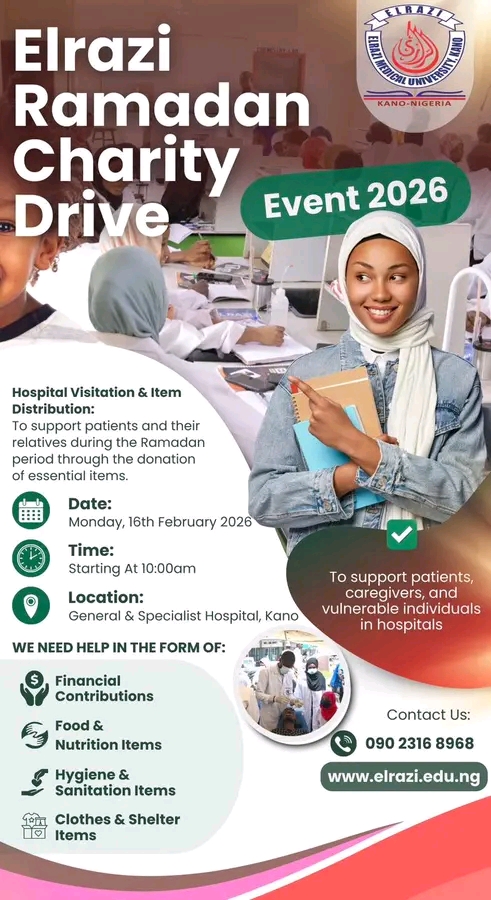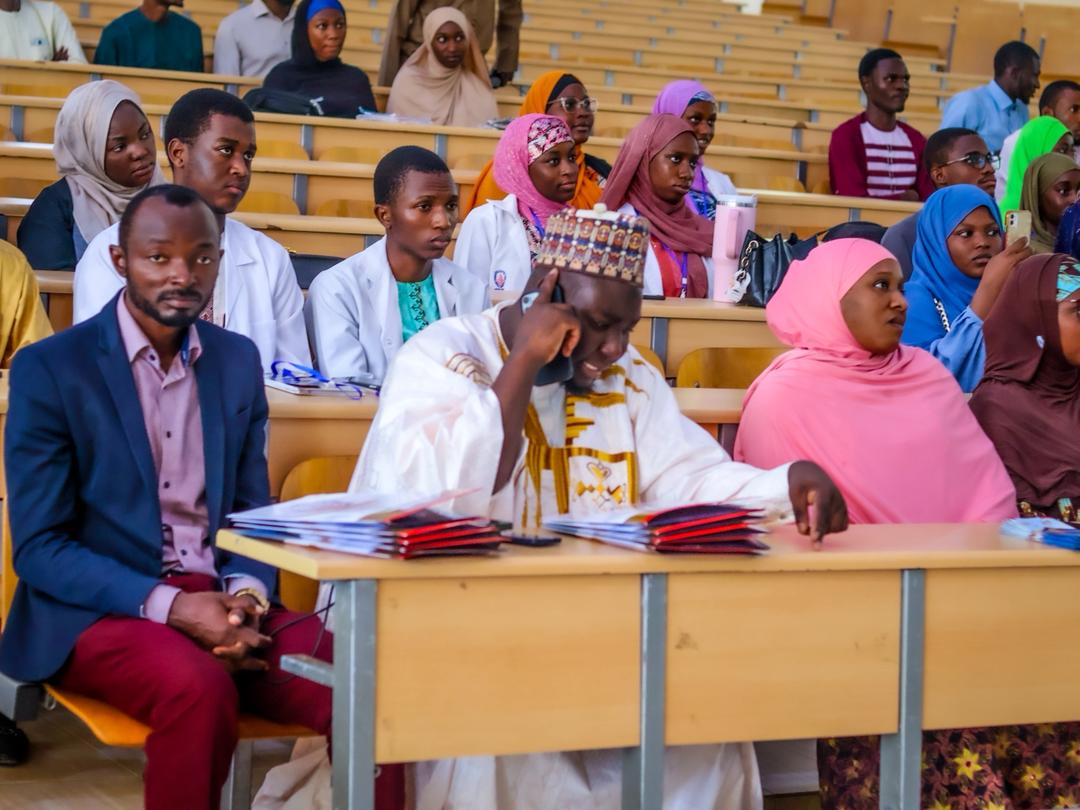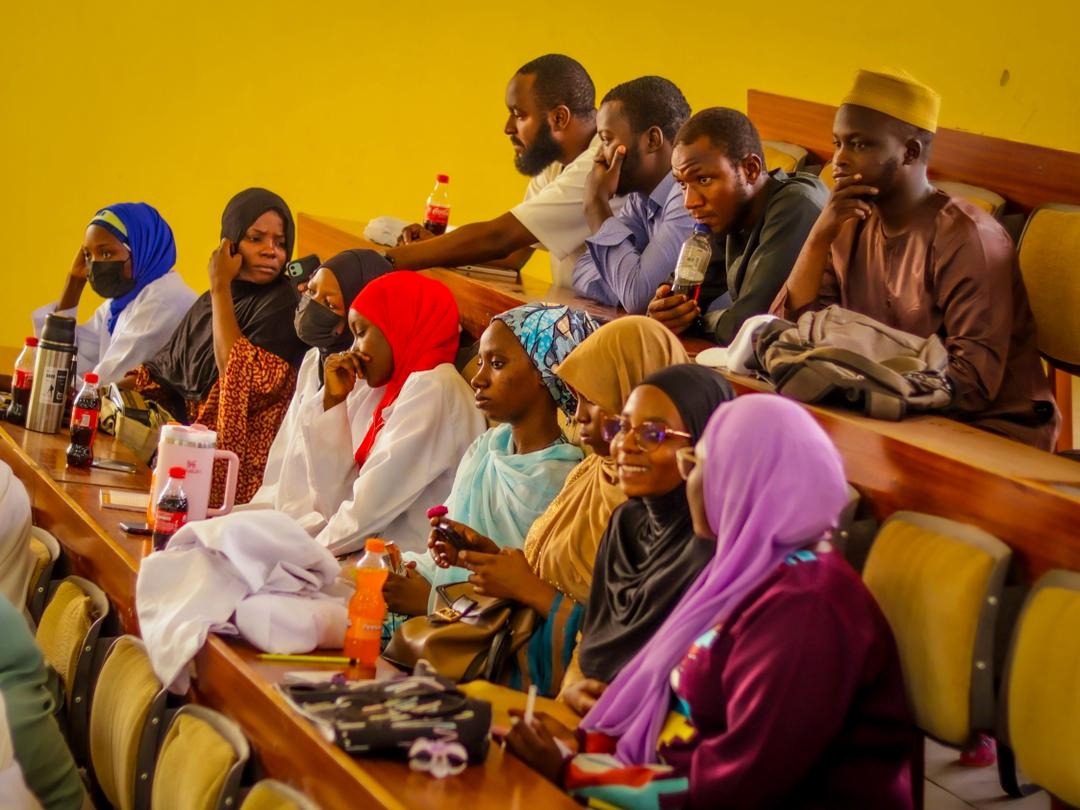 Education
Education
Historical Background & Institutional Identity
The Kano State College of Nursing and Midwifery (sometimes referred to in short as “College of Nursing Sciences, Kano State”) is a state-government owned tertiary institution located in Kano State, Nigeria. According to available sources, the institution is established with multiple campuses (Kano, Madobi, Dambatta, Gwarzo) to serve the diverse local governments of the state.
One source states the college was already established in 1948, making it one of the pioneer nursing schools in Nigeria. However, the operational period and multiple campuses suggest it has been expanding and evolving to meet current training demands.
The main campus is located at Court Road, adjacent to the Aminu Kano Teaching Hospital (AKTH) in Kano State, positioning it well for clinical exposure and partnerships. The institution offers nursing, midwifery, post-basic programmes and has been listed among the accredited schools by the Nursing & Midwifery Council of Nigeria (NMCN).
In essence, KSCoNM is a key player in the health-manpower development chain in Kano State, tasked with training nurses and midwives for the state and possibly beyond.
---
Mission, Vision & Purpose
While a fully detailed mission and vision statement was not identified in the sources reviewed, the purpose of the college can be inferred: to train competent nurses and midwives, equip them with the skills required for effective healthcare delivery, particularly in Kano State and the surrounding region, and to meet professional standards as required by regulatory bodies.
By offering Basic Nursing, Basic Midwifery, Community Midwifery, Post Basic Nursing programmes (and ND/HND Nursing in some reports) the institution aligns with the objective of strengthening primary, secondary and tertiary healthcare services through human resources.
Therefore, the institutional ethos is about: access to healthcare training, enhancing quality of care, supporting regional health systems, and professionalising nursing/midwifery practice in Northwest Nigeria.
---
Academic Programmes & Structure
KSCoNM has a range of programmes, catering to varying levels of nursing/midwifery education:
Basic Nursing: Typically a three-year programme for students without prior nursing qualification who wish to become Registered Nurses.
Basic Midwifery: A three-year programme for candidates wishing to specialise in midwifery—caring for mothers, newborns, and managing deliveries.
Community Midwifery: A two-year programme geared toward midwifery practice in community/rural settings—often for candidates from local governments outside metropolitan Kano.
Post Basic Nursing: For already-qualified Registered Nurses who wish to upgrade their credentials, specialise or take on higher responsibilities.
ND/HND Nursing: Some reports indicate the college offers National Diploma (ND) and Higher National Diploma (HND) Nursing programmes.
Admissions for these programmes involve academic prerequisites: passport-photo, O’Level credits (English, Mathematics, Biology, Chemistry, Physics) usually in not more than two sittings, and for ND showing JAMB score in some cases. Entrance/screening exams, forms, application fees are specified for each cycle.
The multiple-campus approach (Kano, Madobi, Dambatta, Gwarzo) shows the institution’s reach beyond the city centre, facilitating access for students from different local governments.
---
Institutional Facilities & Clinical Exposure
One of the strengths of KSCoNM is its close partnership with major healthcare facilities, especially being adjacent to AKTH in Kano, which allows students to have clinical placements and practical experience in a referral tertiary centre. The proximity to a large teaching hospital supports clinical training, exposure to a broad range of cases, and real-life health service contexts.
Also the multiple campuses help ease logistic pressure and provide flexibility in student intake and configuration. While specific details of training labs, simulation rooms, libraries etc were not widely found in the sources reviewed, standard nursing/midwifery training institutions in Nigeria must comply with NMCN standards regarding clinical facilities, tutors, student-instructor ratios and indexed student registration.
Importantly, for practical professions like nursing and midwifery, the quality of clinical placement, supervision, instructor availability and actual hands-on practice matter significantly for graduate competence.
---
Role in Regional Health & Workforce Development
The college plays a direct role in filling the gap in nursing and midwifery workforce in Kano State and surrounding regional states. By training midwives and community midwives, the institution contributes to maternal, newborn and child health services at primary health-care level—an area of critical importance in Northern Nigeria.
Because nursing and midwifery are integral to health systems (in hospitals, clinics, community health centres), having a local training institution helps ensure the region has staff who are familiar with local languages, culture, health challenges, and can provide context-sensitive care. The presence of multiple campuses means that rural/outer zone students can access training without relocating far, which may help with retention of health staff in underserved areas.
Additionally, the college’s accreditation by the NMCN means that graduates are eligible for professional registration, which is essential for deployment and recognition.
---
Strengths & Positive Value Proposition
For a student considering KSCoNM, the following strengths stand out:
Accessibility & Proximity: Located in Kano State, with multiple campuses, making it logistically convenient for many students in the state.
Accredited Programmes: The college is recognized and listed by the NMCN, meaning the programmes meet regulatory standards and yield registrable credentials.
Range of Programmes: From basic nursing/midwifery to post-basic and diploma/higher diploma, the institution offers a path for progression and specialisation.
Community-Oriented Training: With programmes like Community Midwifery, the college addresses rural health needs and may offer unique opportunities for service and impact.
Clinical Exposure Partnerships: The main campus’s adjacency to AKTH and other health facilities implies strong practical elements in training—important for nursing/midwifery competence.
For someone like you—if you are interested in health sector training, or have an interest in community service, outreach, and building skills in health care—KSCoNM offers a focused route into a profession with high demand, social impact, and job security potential.
---
Challenges & Considerations
No institution is without its caveats. When choosing KSCoNM you should keep in mind:
Resource / Infrastructure Limitations: As with many state-owned training colleges, there may be constraints in facilities (labs, simulation centres, IT resources), maintenance, staffing levels. Investigate what the current state is for your desired programme.
Admission Competition: Basic, midwifery programmes often attract many applicants—meeting the required O’Level credits, passing entrance exams are key. For example: the cut-off mark for nursing programmes is quoted at around 150 for 2025/26.
Scope & Specialisation: If you aim for very specialized or high-tech nursing sub-fields (intensive care, neonatal ICU, advanced practice nursing) you should check whether KSCoNM offers those specialisations or whether you'll need further training after the college.
Progression and Career Planning: Some students may need to plan ahead for postgraduate diplomas or further degrees to move into higher roles. Confirm how KSCoNM facilitates progression, linkages, or partnerships for continuing education.
Campus & Student Life Variation: With multiple campuses, the student experience may vary widely between locations. Factors like housing, commuting, campus culture, extracurriculars differ and should be assessed.
Regulatory & Accreditation Updates: Although accredited, it's wise to check the current status of the specific programme you want, as periodic re-accreditation is required.
---
Why This Institution Might Matter for You
Given your broader goals (you are Umar bin Isa Africa, interested in development, skills, outreach, using digital content, and maybe service to community) here’s how KSCoNM could align:
If you are drawn to service-oriented healthcare, especially maternal/child health, community health, nursing/midwifery is precisely that field.
Your interest in creating content, motivational materials, outreach could be complemented by nursing/midwifery training: health education, patient counselling, public-health messaging are integral to such roles.
Staying in Kano (if you’re based there) means you can maintain your side projects (web development, content creation, Islamic motivational work) while studying locally.
The demand in nursing/midwifery is strong—these are professions with real job opportunities, especially in underserved areas where you may wish to serve.
With a nursing/midwifery qualification, your capacity for community impact (health education, outreach, service) is enhanced. That matches your desire for beneficial work beyond just academic degrees.
---
Closing Summary
In sum: The Kano State College of Nursing and Midwifery (KSCoNM) is a significant health-training institution in Kano State, offering accredited nursing and midwifery programmes, with multiple campuses and a strong service-orientation. It plays a key role in developing the health workforce required to support the region’s healthcare infrastructure, especially in maternal, newborn, child and community health.
For prospective students it offers an accessible route into a profession that combines technical skill, human service and community impact. That said, one should assess programme specifics, infrastructure readiness, and personal career goals carefully before committing.






